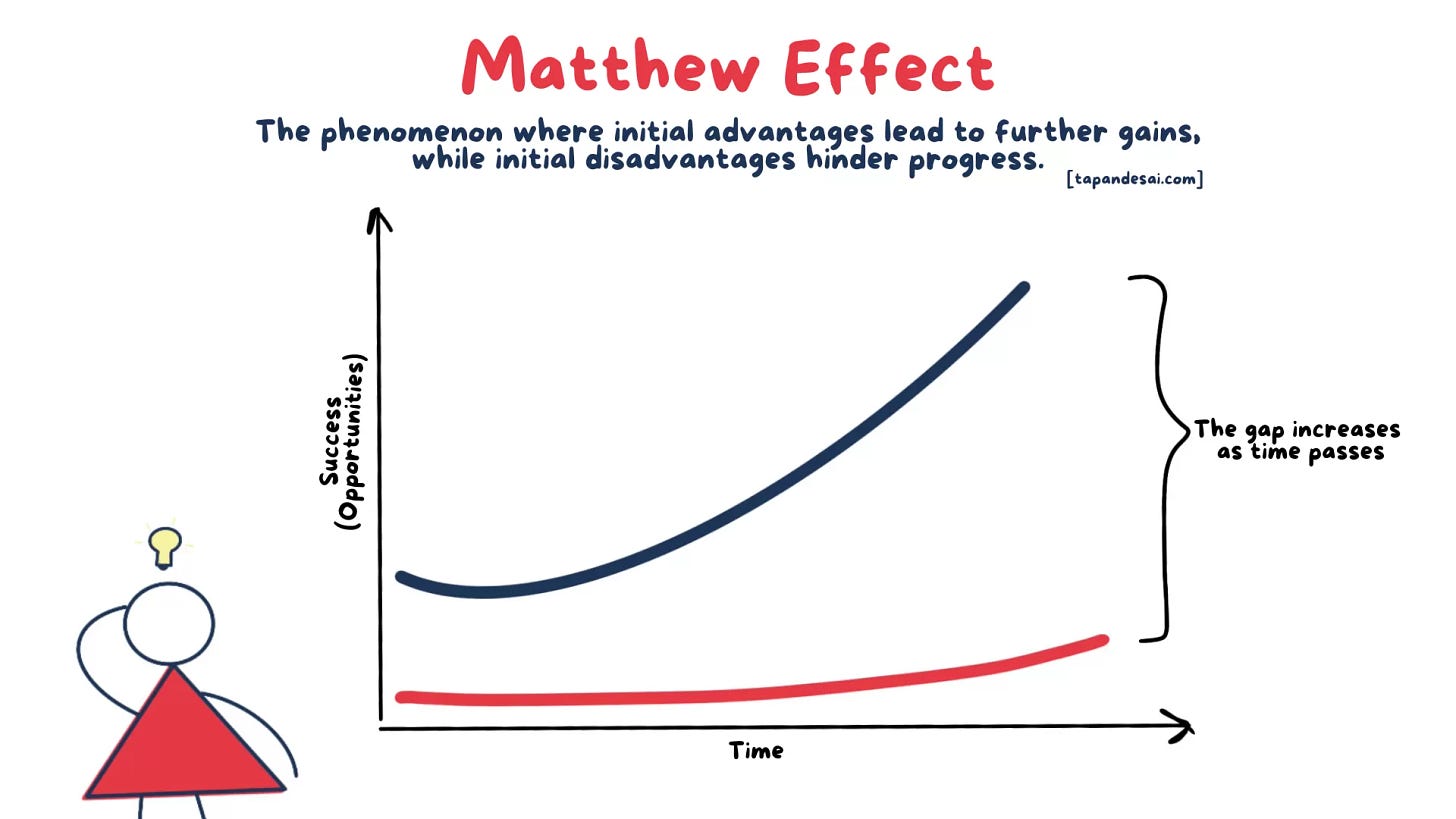Accumulated Advantage
What consistency and marginal wins can teach us about success
What is the Matthew Effect of accumulated advantage, and what can it teach us about success?
Accumulated advantage is the process of accumulating small advantages, which then accelerate into larger advantages over time.
It’s why educators know that kids who start reading early gain an advantage over kids who start later. And this reading gap accelerates into higher grades because the early readers build upon their foundation.
It’s why musicians who are getting popular start attracting larger crowds; well-known companies find it easier to sell than upcoming brands; and famous social media influencers are given more credit than less famous influencers for saying the same thing.
This is called the Matthew Effect. It takes its name from the “Parable of the Talents” in the Bible’s Gospel of Matthew, which has been summarized as, “the rich get richer and the poor get poorer.”
A lesson from the Matthew Effect is that if you want success (however you define it) you should accumulate your own small advantages, consistently over time, and watch them snowball into larger advantages and wins.
Charlie Munger said the following about this topic:
Obviously if you want to get good at something which is competitive, you have to think about it and practice a lot. You have to keep learning because [the] world keeps changing and competitors keep learning. You have to go to bed wiser than you got up. As you try to master what you are trying to do — people who do that almost never fail utterly. Very few have ever failed with that approach. You may rise slowly, but you are sure to rise.
Kobe Bryant attributed his success to a “Mamba mentality” which he described as “a constant quest to try to be better today than you were yesterday and better tomorrow than you were the day before.” Kobe spoke of his desire to be one of the greatest basketball players by accumulating advantage through his daily workout routine:
You wake up at 3am, train from 4 to 6am. Come home, eat breakfast, relax. Now you're back at it again, 9-11am. Relax. Back at it again, 2-4pm. Now you're back at it again, 7-9pm. By year five & six, it doesn't matter what kind of work they do in the summer - they're never gonna catch up.
Marginal gains compound. Every small choice, win, and learning adds to your foundation for future growth.
May you enjoy the glorious fruits of your consistency — getting better each day, and accumulating your own advantages.


